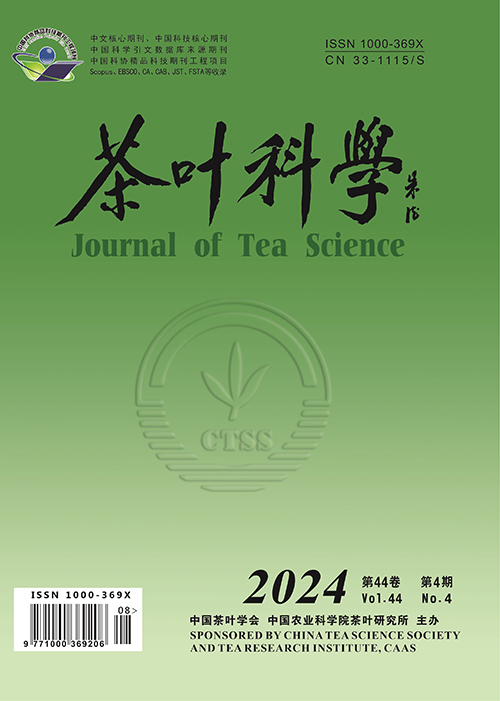长时间化学凋谢后硬物理凋谢叶片对复水反应的无性系变异
引用次数: 1
摘要
长时间的化学枯萎和硬的物理枯萎会降低普通红茶的质量,因为它们会减少总茶黄素的产生,同时促进茶红素的形成。这种质量降低可能因茶树的基因组成而异。然而,补液可以重新激活氧化酶的活性,这些酶负责产生普通红茶的质量参数。研究了对化学萎蔫时间较长的硬物理萎蔫叶进行再水化处理对两种无性系普通红茶品质参数的影响。再水化恢复了硬枯茶品质参数的形成。但由于化学萎蔫时间过长导致的品质劣化不能通过补液来逆转。所用克隆的反应模式是相似的。因此,在普通红茶的加工过程中,应努力将化学枯萎持续时间保持在30小时以下。然而,补液将普通红茶的质量参数通过硬物理萎凋逆转为相当于化学萎凋。发表信息文章历史:收稿日期:02.08.2016修回日期:15.04.2017收稿日期:30.08.2017 DOI:https://doi.org/10.20425/ ijts.v13i01-02.9986本文章由计算机程序翻译,如有差异,请以英文原文为准。
Clonal Variations in the Response of Hard Physically Withered Leaf to Rehydration Following Long Chemical Wither Durations
Long chemical wither durations and hard physical wither reduce the quality of plain black tea, through reduction in total theaflavins production while encouraging thearubigins formation. Such quality reduction may vary with genetic makeup of the tea plant. However, rehydration reactivates activities of oxidative enzymes responsible for producing plain black tea quality parameters. Influence of rehydrating hard physically withered leaf that had undergone long chemical wither durations on two clonal plain black tea quality parameters were assessed. Rehydration restored the formation of plain tea quality parameters from hard physically withered leaf. However, quality deterioration due to long chemical wither duration could not be reversed by rehydration. The patterns of responses of the clones used were similar. Thus in the processing of plain black tea, efforts should be made to maintain chemical wither durations to below 30 hours. However, rehydration reverses reduced plain black tea quality parameters by hard physical withers to equivalent of chemical wither. Publication Info Article history: Received : 02.08.2016 Revised : 15.04.2017 Accepted : 30.08.2017 DOI:https://doi.org/10.20425/ ijts.v13i01-02.9986
求助全文
通过发布文献求助,成功后即可免费获取论文全文。
去求助
来源期刊
CiteScore
1.50
自引率
0.00%
发文量
2558
期刊介绍:
The Journal of Tea Science was established in August 1964, approved by the Publicity Department, CCCPC. Its title was inscribed by Zhu De, the chairman of CCCPC. It was discontinued during the Cultural Revolution in 1966, and it was reissued in August 1984, approved by the State Scientific and Technological Commission.Academicians Chen Zongmao and Liu Zhonghuaof the Chinese Academy of Engineering served as the directors of the editorial board. The Journal of Tea Science is managed by the China Association for Science and Technology,sponsored by the China Tea Science Society and the Tea Research Institute of the Chinese Academy of Agricultural Sciences, and edited and published by the editorial office of the Journal of Tea Science. It is the only one of Chinese core journals in the field of tea science that is included in the core library of the Chinese Science Citation Database.Its Domestic Unified Serial Number is CN 33-1115/S, its International Standard Serial Number is ISSN 1000-369X and its International publication name code is CODEN-CHKEF4. At present, the Journal of Tea Science is a bimonthly publication, published in the middle of the month, with a book size of 16.

 求助内容:
求助内容: 应助结果提醒方式:
应助结果提醒方式:


